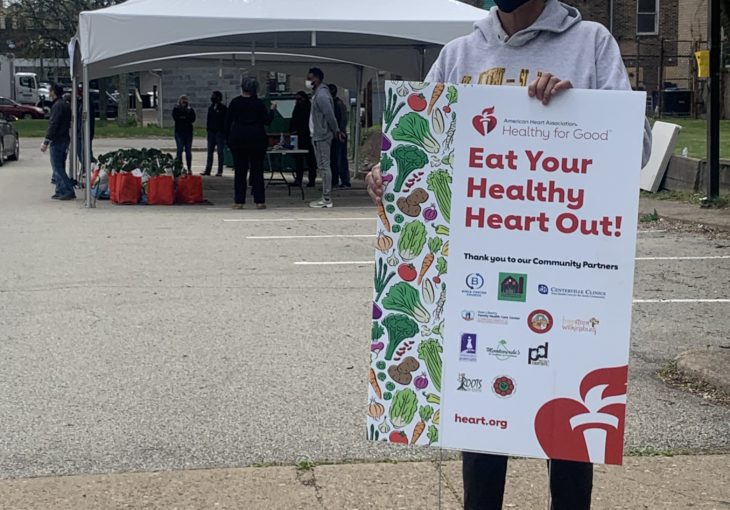One in 5 Pittsburghers are food insecure, and the rates increase to 1 in 3 among Black residents in Pittsburgh. The number of community members experiencing food insecurity has increased 50% since the onset of the COVID-19 pandemic. Kids, low-income communities of color, seniors, and those without access to transportation are disproportionately impacted. We are committed to changing that – increasing access to healthy foods that improve heart and brain health.
Currently, in collaboration with community organizations across Allegheny County and Greater Pittsburgh we have organized 72 No-cost Pop-Up Produce Markets—providing a variety of high-quality fresh fruits and vegetables to residents in historically marginalized communities with significant disinvestment. And we work with Centerville Clinics, an FQHC, to distribute 800 fresh produce boxes each month across 3 rural counties in SW PA.
We include health education, recipe cards and cooking videos from the American Heart Association with the produce distribution to educate neighbors on preparing the produce ways to improve cardiovascular health.
In addition to addressing the immediate food access needs many of our community members face, we have worked closely with these organizations to establish food insecurity screening and referral systems that connect residents to longer-term resources, such as SNAP and WIC. And we are expanding the Food Bucks program so that SNAP recipients increase their spending capacity on fresh fruits and veggies.
“Access to a variety of fresh foods is foundational to heart health,” said Indu Poornima, MD, president of the American Heart Association, Greater Pittsburgh Board of Directors and cardiologist with Allegheny Health Network. “A diet rich in fresh fruits and vegetables is integral to preventing and treating high blood pressure, diabetes, and heart disease and yet 23 neighborhoods in the City of Pittsburgh have been identified as Healthy Food Priority Areas where residents experience significant barriers to affordable, fresh food. This program is a community effort and an essential piece of the American Heart Association’s commitment to helping every person live healthier lives.”
Since January 2021, No-cost Pop-Up Produce Markets have made a profound impact in Greater Pittsburgh. Over 150 volunteers have stepped up to help pack boxes, organize markets, provide health screenings and assist their neighbors. To date, the program has provided 202 tons of fresh fruits and vegetables, which equates to about 200 Chevy Sparks or Hyundai Accent cars and on track to feed more people than the seating capacity of our three beloved professional sports arenas, combined.
